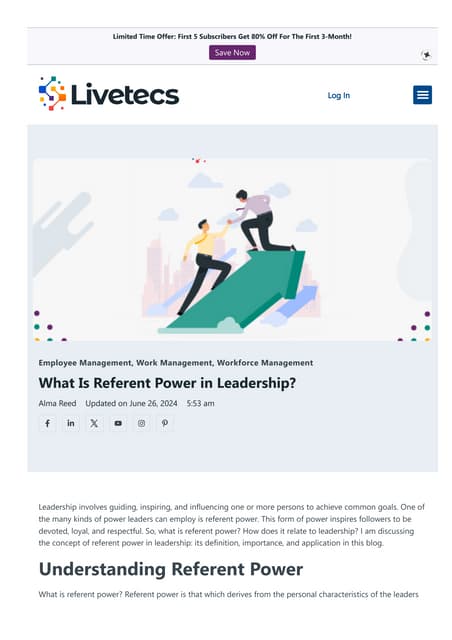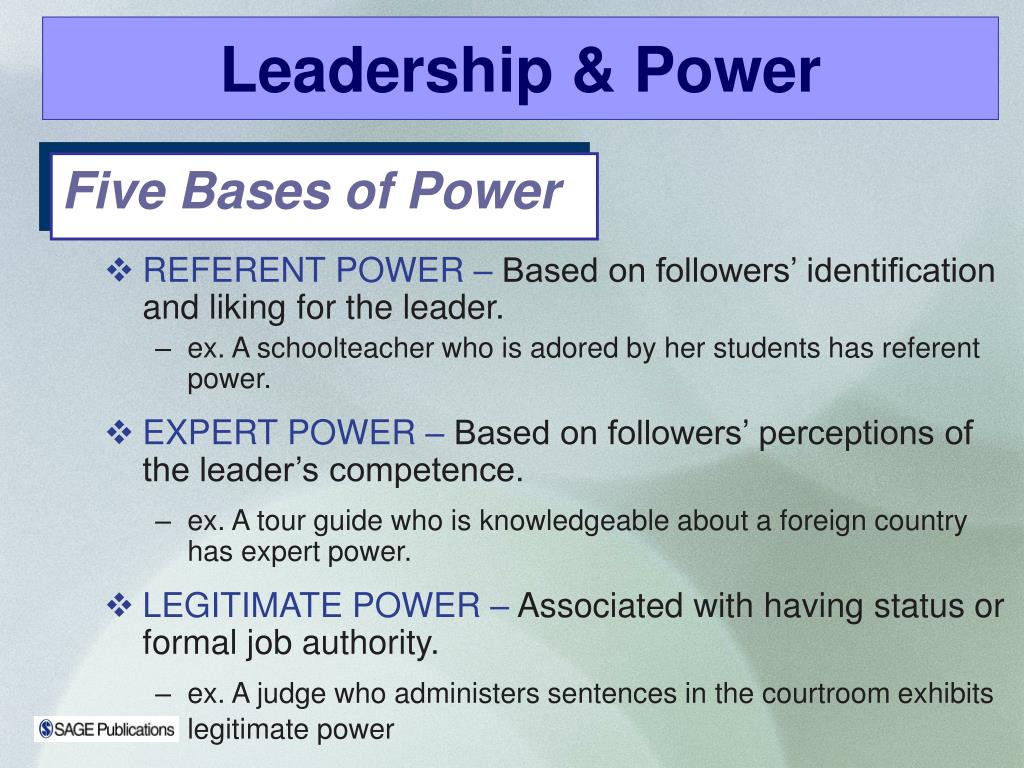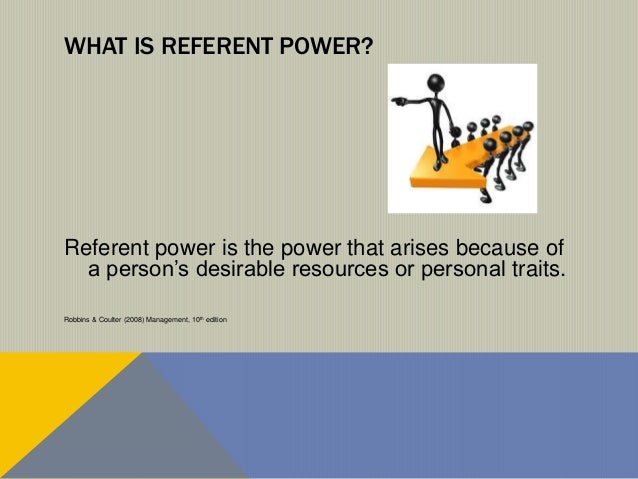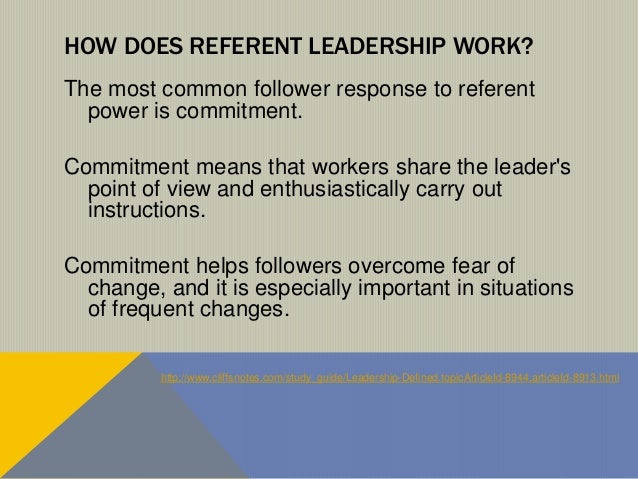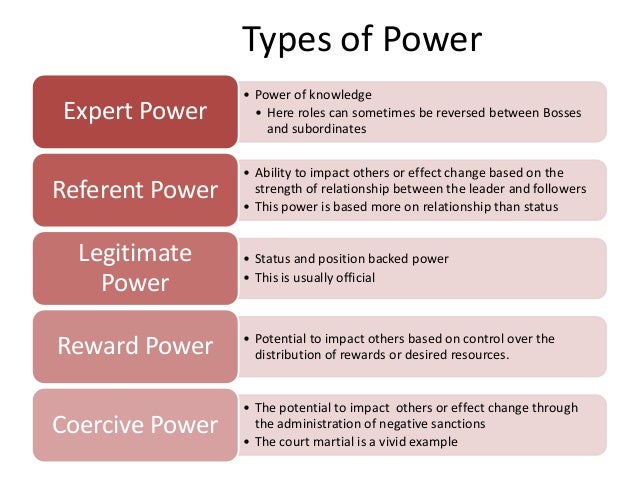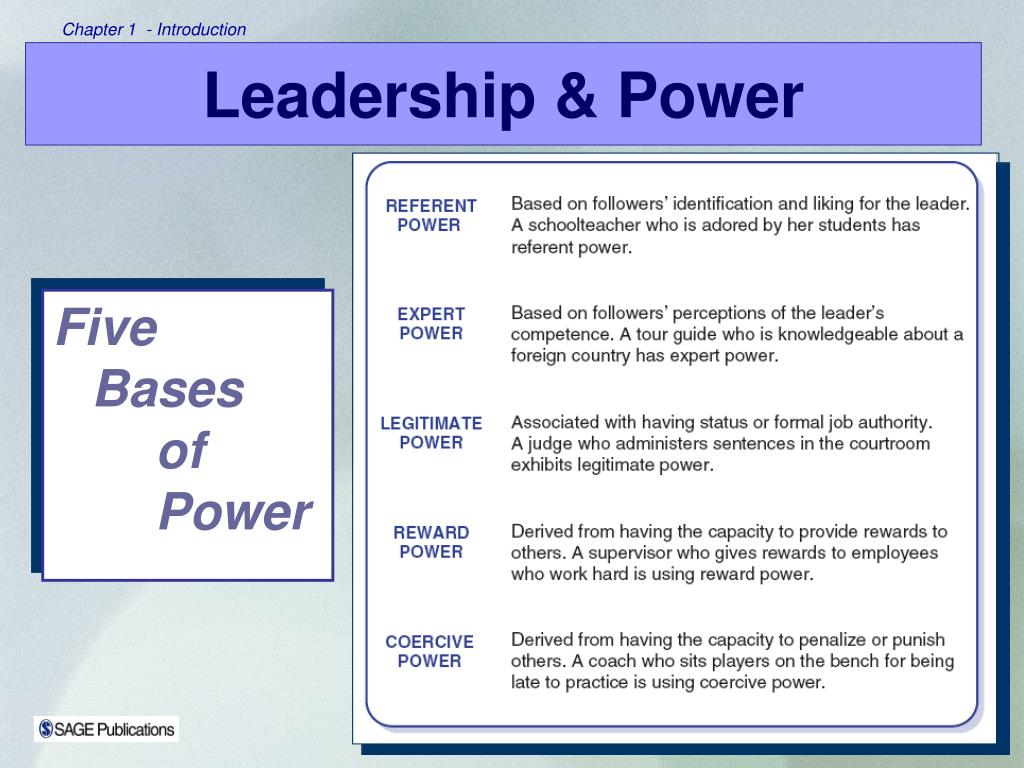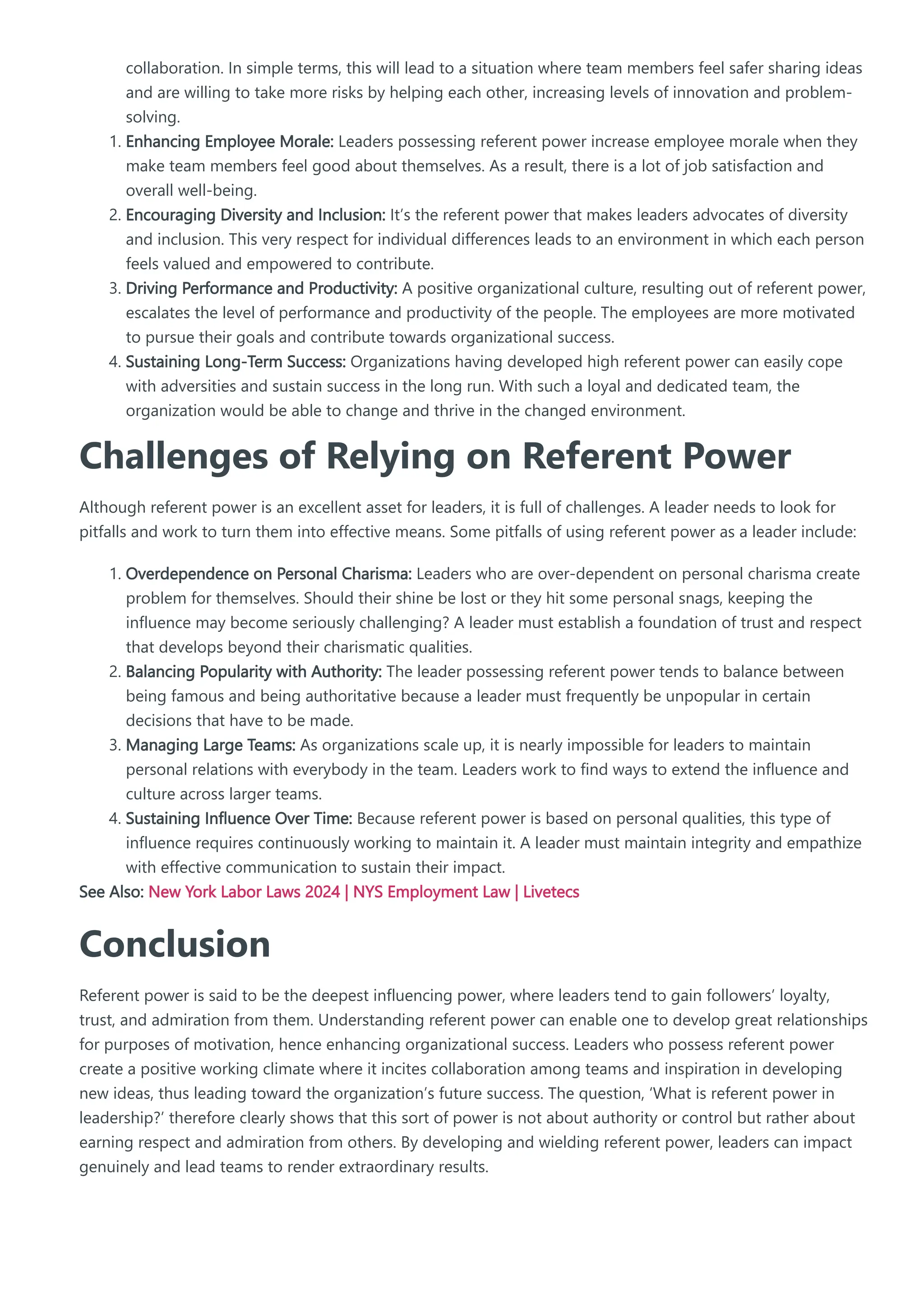What Is Referent Power In Leadership

In an era defined by rapid change and complex organizational structures, the ability to lead effectively has become paramount. While traditional hierarchical power structures still exist, a more nuanced and interpersonal form of influence is gaining prominence: referent power. This subtle yet potent force shapes team dynamics, drives engagement, and ultimately impacts organizational success.
At its core, referent power stems from the admiration, respect, and trust that a leader cultivates within their team. It's not about authority bestowed by a title, but rather the influence earned through genuine connection and embodiment of valued qualities. Understanding the mechanisms and implications of referent power is crucial for aspiring and established leaders alike.
Understanding Referent Power
Referent power is one of the five bases of power identified by social psychologists John French and Bertram Raven in 1959. Unlike coercive or reward power, which rely on external motivators, referent power is intrinsic. It hinges on the leader's charisma, integrity, and ability to inspire.
Leaders who possess referent power are often seen as role models. Their actions and values align, creating a sense of authenticity that resonates with their team members. This alignment fosters a desire to emulate the leader, leading to increased motivation and commitment.
Key Characteristics of Leaders with Referent Power
Several characteristics distinguish leaders who effectively wield referent power. These traits contribute to their ability to build strong relationships and inspire their teams.
Firstly, integrity is paramount. Leaders must demonstrate honesty, fairness, and ethical conduct in all their interactions. A leader who compromises their values quickly erodes trust and diminishes their referent power.
Secondly, communication skills are essential. The leader must clearly articulate their vision and values, while also actively listening to and valuing the perspectives of their team members.
Thirdly, empathy plays a crucial role. Understanding and responding to the needs and concerns of team members fosters a sense of connection and belonging. This can be achieved by creating a safe space for team members to voice any concerns.
Benefits of Referent Power in Organizations
The advantages of referent power extend beyond individual leader-follower relationships. It positively impacts the entire organizational ecosystem.
Enhanced employee engagement is a direct consequence. When employees respect and admire their leaders, they are more likely to be invested in their work and contribute their best efforts. According to a Gallup poll, employees who feel valued by their leaders are significantly more engaged and productive.
Increased team cohesion is another significant benefit. Referent power fosters a sense of unity and shared purpose within the team. This leads to improved collaboration and problem-solving.
Reduced employee turnover is often observed in organizations where referent power is prevalent. Employees are less likely to leave when they feel valued and connected to their leaders and colleagues.
Challenges and Considerations
While referent power offers numerous advantages, it's not without its challenges. It is important to use referent power responsibly.
One potential pitfall is the risk of favoritism. Leaders must be mindful to treat all team members fairly, regardless of personal preferences. Perceived bias can quickly undermine trust and damage referent power.
Another challenge is the potential for dependence. Team members might become overly reliant on the leader's approval, hindering their own creativity and initiative. The leader needs to make sure that the team members are autonomous and self-sufficient.
Furthermore, building referent power requires time and effort. It cannot be instantly acquired or artificially manufactured. It requires consistent demonstration of integrity, empathy, and strong communication skills.
"Referent power is not a shortcut to leadership, it's the result of consistent ethical and inspiring behavior." - Dr. Emily Carter, Organizational Psychologist
Cultivating Referent Power
Leaders can actively cultivate referent power through conscious effort and deliberate actions.
Lead by example: Embody the values and behaviors that you want to see in your team. Show respect, integrity, and a commitment to excellence. Invest in relationships: Take the time to get to know your team members on a personal level. Show genuine interest in their goals and aspirations.
Empower your team: Delegate responsibilities and provide opportunities for growth and development. Trust your team members to make decisions and take ownership of their work. Recognize and appreciate contributions: Publicly acknowledge and reward the achievements of your team members. Show your appreciation for their hard work and dedication.
The Future of Leadership
In an increasingly complex and interconnected world, the importance of referent power will only continue to grow. As organizations move away from traditional hierarchical structures, the ability to inspire and influence through personal connection will become even more critical.
Leaders who can effectively cultivate referent power will be well-positioned to navigate the challenges of the future. They will be able to build high-performing teams, drive innovation, and create a positive and engaging work environment. The future of leadership lies in building trust, fostering connection, and inspiring others to reach their full potential.
Ultimately, referent power is not just about being liked; it's about being respected and trusted. It's about earning the right to lead through authenticity, integrity, and a genuine commitment to the success of others. This is the power that truly endures.



